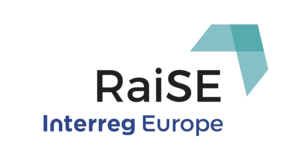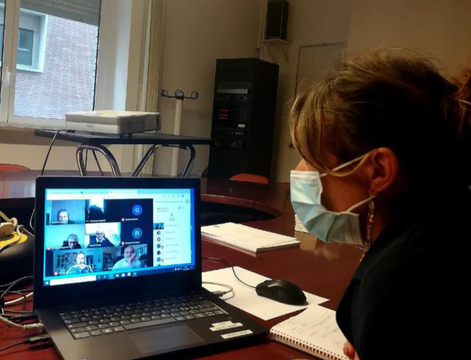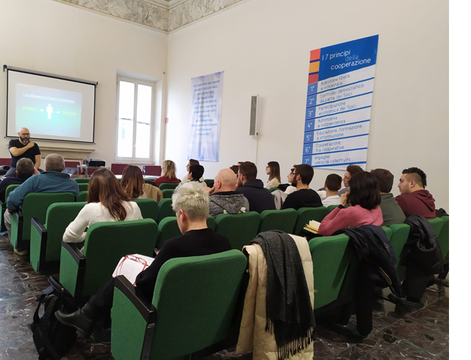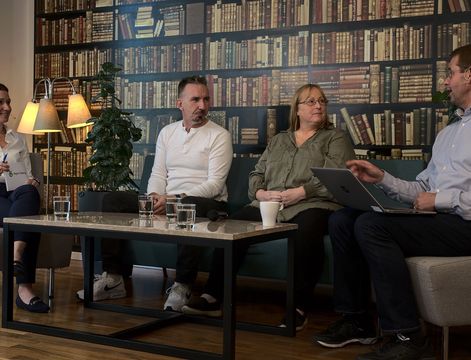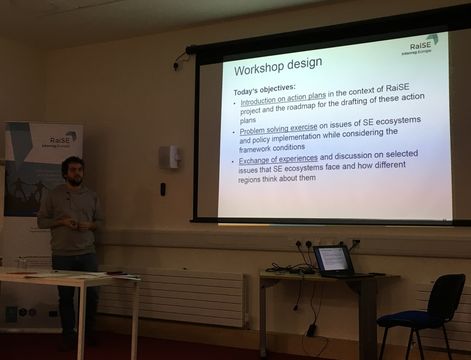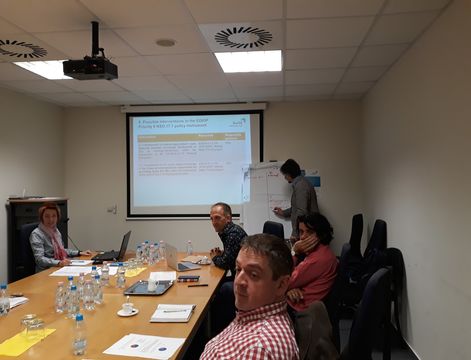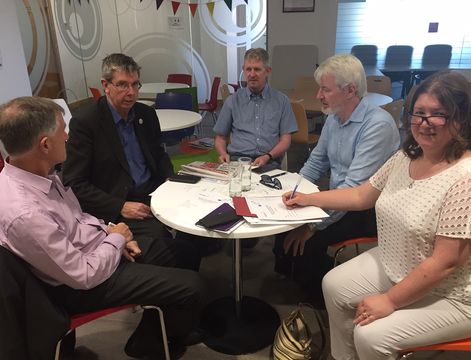RaiSE attends a conference on social enterprises and public procurement
One of the Catalan stakeholders of RaiSE project, Taula d'entitats del Tercer Sector Social de Catalunya, organized on Tuesday 12 March the conference "Enhance public procurement in services to people" ("Millorar la contractació pública en els serveis a les persones").
Third sector proposals to improve Catalan and Spanish legal framework
Third sector organizations have realized that Public Administrations still prioritise economical criteria in public procurement, and that Third sector values (social clauses) are not specific to third sector enterprises, because many trade companies comply with the values as well.
The main demands of Third sector regarding public procurement in services to people are that the bids should include the VAT, social dumping should be forbidden, technical/quality criteria should count 50%, workers should be subrogated when a service is internalised (this doesn't happen now), and a Good Practice Code should be applied.
Quality of public procurement in local administrations
The second part of the conference was dedicated to present the results of the study "Quality of public procurement in local administrations in services to people" ("La qualitat de la contractació pública local en l'àmbit dels serveis a les persones"). Eight of the main townhalls in Catalunya have been analised between January-June 2016, and the result is clear:
The Third sector feels at disadvantage when competing for public contracts, because townhalls prioritise economical criteria among the quality of services
The study proves that 64,2% of public contracts in services to people prioritise economical criteria among technical criteria, and that this has an effect on the quality of services. Third sector and social economy only win the 39% of tenders. In 9 of each 10 contracts, quality is not an obligation, and the specifications tend to favour trade companies.
The Third sector considers that tender specifications should take into account the "social solvency": community experience, networks and participation in projects to foster social economy, among others. Besides, half of the contracts don't include "social clauses" neither conditions about labour rights, equity or gender.
Public procurement should be a field to project strategies of social inclusion
Answer of the public authorities
The Catalan government is working on a new legal framework that will give an answer to many of these issues and will focus on searching a better quality-price ratio.
